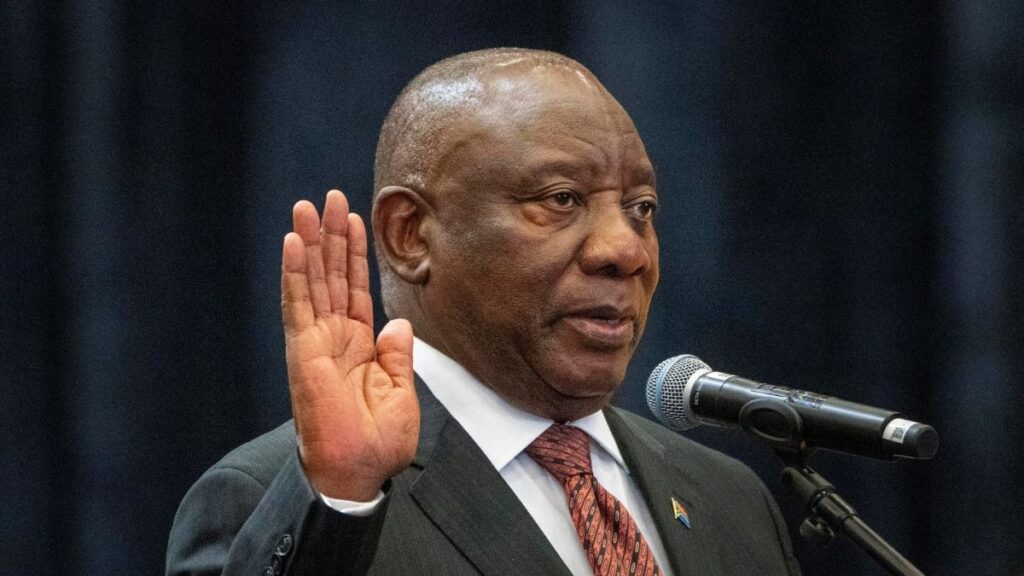South African President Cyril Ramaphosa was sworn in as a member of Parliament, signaling the commencement of a crucial vote to determine his re-election as the leader of the nation in Cape Town, South Africa on 14 June, 2024. This event marked a pivotal moment in the political landscape of South Africa, as Ramaphosa, a stalwart of the African National Congress (ANC), faced a challenging vote following a decline in support for his party in recent elections.
The election results had dealt a blow to the ANC, which historically had been a dominant force in South African politics since the end of apartheid. However, a coalition deal with the Democratic Alliance (DA), a pro-business party, paved the way for Ramaphosa’s re-election. This unlikely collaboration between the ANC and the DA, longtime political rivals, illustrated a willingness to set aside differences in the pursuit of governance.
In a late-night vote, Ramaphosa emerged victorious over Julius Malema, the leader of the far-left Economic Freedom Fighters, securing 283 votes compared to Malema’s 44 supporters. The outcome highlighted the victory of Ramaphosa’s centrist approach within the ANC, despite facing opposition from more leftwing factions.
The formation of the coalition government came in the wake of a significant setback for the ANC in the parliamentary elections, where the party lost its majority for the first time since the historic 1994 elections. The decline in ANC’s vote share, from 57.5% in 2019 to 40.2% in 2024, underscored the challenges facing the party, including internal divisions and public discontent over economic stagnation.
The involvement of the DA, which secured 22% of the votes in the recent elections, added a new dimension to South Africa’s political landscape. The party’s decision to support Ramaphosa signaled a shift towards a more collaborative political environment, emphasizing the need for shared governance and problem-solving.
Following the coalition agreement, the newly appointed legislators were sworn in at a convention center in Cape Town, symbolizing a new chapter in South Africa’s political evolution. The pact between the ANC and the DA included a commitment to a merit-based and professional civil service, aiming to address concerns about nepotism and corruption.
As the political landscape in South Africa continues to evolve, smaller parties such as the Inkatha Freedom Party (IFP) and the Patriotic Alliance (PA) expressed their desire to be part of the government. These developments mark a turning point in South Africa’s political history, signaling a shift towards a more inclusive and collaborative approach to governance.
References:
– African National Congress (ANC)
– Democratic Alliance (DA)
– Economic Freedom Fighters
– Inkatha Freedom Party (IFP)
– Patriotic Alliance (PA)
